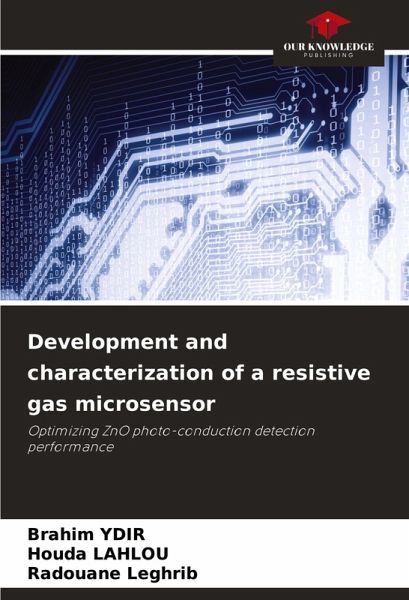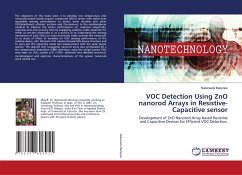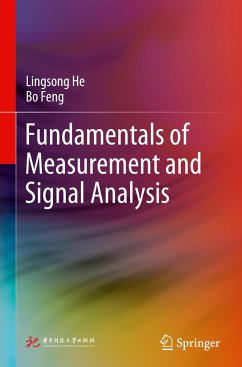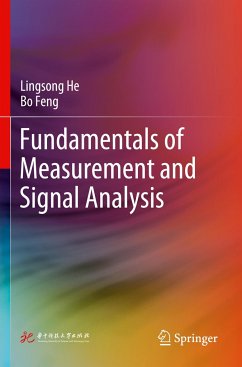
Development and characterization of a resistive gas microsensor
Optimizing ZnO photo-conduction detection performance
Versandkostenfrei!
Versandfertig in 6-10 Tagen
29,99 €
inkl. MwSt.

PAYBACK Punkte
15 °P sammeln!
This book presents the development of a ZnO-based gas microsensor and its electronic characterisation system. It begins with a study of the properties of ZnO, a gas-sensitive semiconductor material, and its detection mechanism based on molecular adsorption, which can be activated by heat or UV-visible light. The book then details the design of a complete electronic system, based on an Arduino board and a LabVIEW interface, enabling both the acquisition of environmental data (gas, temperature, humidity) and the control of the sensor's photoactivation. The system was tested for the detection of ...
This book presents the development of a ZnO-based gas microsensor and its electronic characterisation system. It begins with a study of the properties of ZnO, a gas-sensitive semiconductor material, and its detection mechanism based on molecular adsorption, which can be activated by heat or UV-visible light. The book then details the design of a complete electronic system, based on an Arduino board and a LabVIEW interface, enabling both the acquisition of environmental data (gas, temperature, humidity) and the control of the sensor's photoactivation. The system was tested for the detection of ethanol vapours, revealing a significantly improved response in UV photoactivation mode, particularly in terms of sensitivity and response time, compared to thermal activation. The behaviour of the sensor was also studied as a function of illumination parameters, such as pulsed or continuous mode and frequency. This book demonstrates the potential of nanomaterials for smart sensors, while highlighting the technical challenges encountered and avenues for future improvement.












